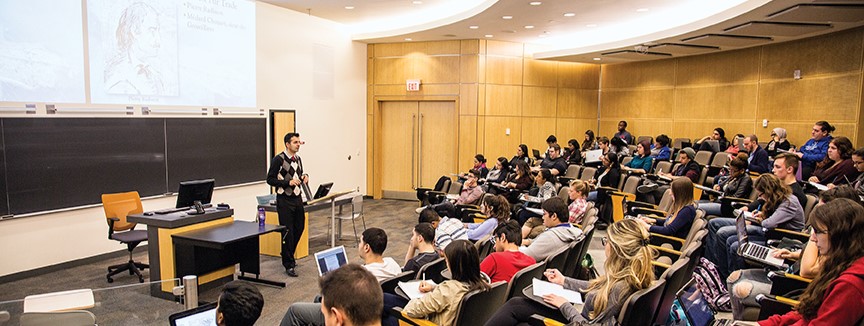
CIAN Seminar - Let’s face it: probing primates’ ability to decode facial expressions
By Dr. Kohitij Kar
Abstract
Facial expression recognition is a core component of human social interaction, relying on complex visual features to convey emotional cues. Like any other vision-based task, to recognize the message conveyed by facial expressions, our sophisticated visual system must first process these sensory cues, facilitating flexible downstream readouts that could support a wide range of social behaviours. However, for autistic individuals, certain facets of this process appear to diverge, leading to notable differences in emotion interpretation and social engagement. How can we do basic neuroscientific studies of the face and facial expression-related behaviours and their underlying mechanism to address these variations at a level precise enough to inform improved diagnostic markers and potential interventions? Can we build a macaque model to study the underlying mechanisms of human facial expression judgment? Can we leverage the latest developments in AI to develop a closed loop between AI and system neuroscience to benefit autism research? In this talk, I will discuss the progress made so far in our lab to this end and our path ahead.
Biography
Dr. Kohitij Kar is an Assistant Professor at the Department of Biology in the Faculty of Science at York University, Toronto, Canada. Dr. Kar is also a Canada Research Chair in Visual Neuroscience. Dr. Kar was named one of the Future Leaders in Canadian Brain Research in 2022. Prior to this, Dr. Kar was a Research Scientist at the McGovern Institute for Brain Research at MIT, working in the lab of Dr. James DiCarlo. Before joining the DiCarlo Lab, he completed his Ph.D. in the Department of Behavioral and Neural Sciences at Rutgers University in New Jersey (PhD advisor: Bart Krekelberg) in 2015. Dr. Kar’s research lies at the intersection of neurophysiological investigations of visual intelligence in non-human primates and artificial intelligence systems. His work has been published in top-tier neuroscience journals like Science, Nature Neuroscience, and Neuron and competitive machine learning conferences like NeurIPS and ICLR. Dr. Kar has also recently become an SFARI investigator after receiving a Simons Foundation grant to develop a non-human primate model of autism.

Recent Comments